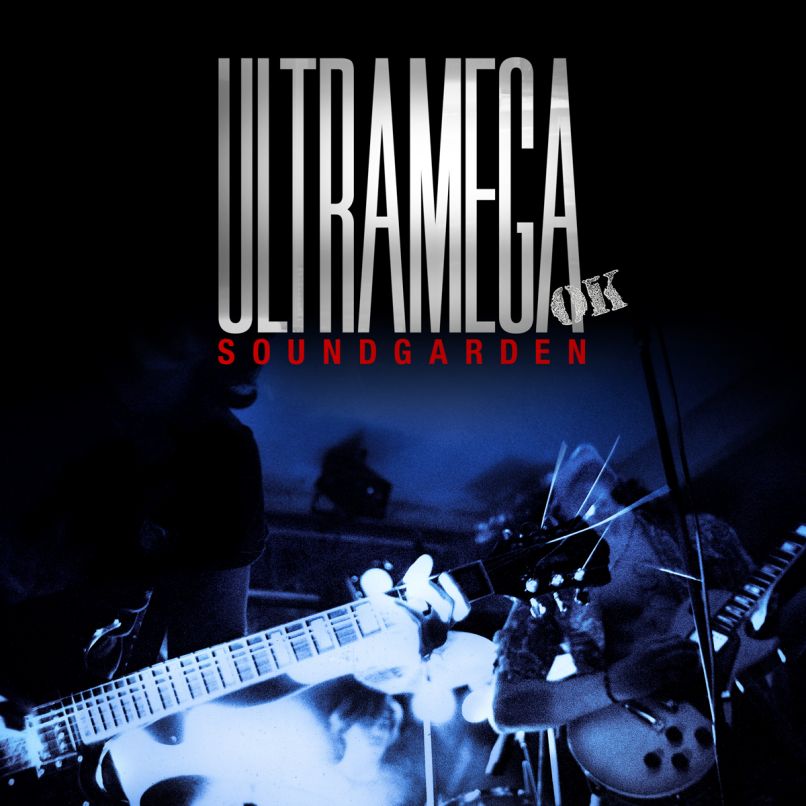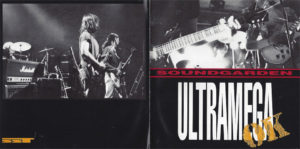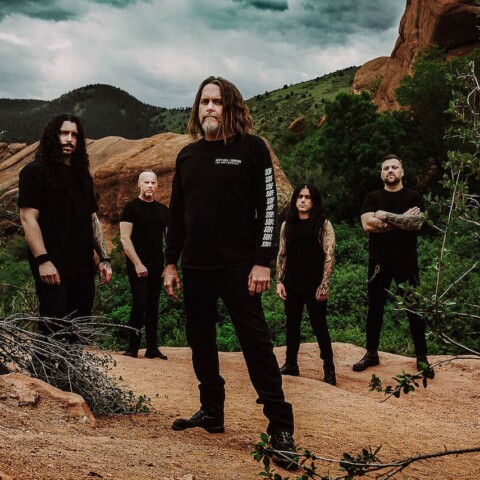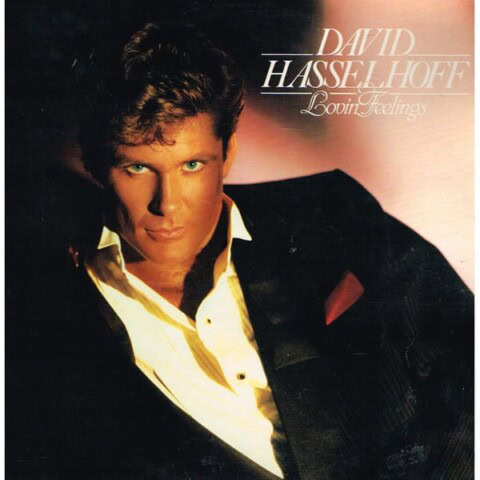Witchdoctor Rating
-
- 5/105/10
Summary
How did Soundgarden’s remixed and remastered album end up sounding so bad? GARY STEEL’s tinnitus screams his name.
 You know that thing where bands transcend their stylistic boundaries and something really cool happens? It happened with Soundgarden on Motorfinger in 1991, after they’d left behind their indie past and signed with a corporate. Songs like ‘Rusty Cage’ and ‘Jesus Christ Pose’ didn’t seem to have any exact precedent.
You know that thing where bands transcend their stylistic boundaries and something really cool happens? It happened with Soundgarden on Motorfinger in 1991, after they’d left behind their indie past and signed with a corporate. Songs like ‘Rusty Cage’ and ‘Jesus Christ Pose’ didn’t seem to have any exact precedent.
Like that other smash hit Seattle band, Nirvana, Soundgarden had metal roots but you couldn’t call them a metal band, because theirs was a different kind of aggression. While Nirvana had a nervous punk energy and pure pop at their core though, Soundgarden seemed to reach back to the more declamatory moments of ‘60s bands like The Doors and ‘70s bands like Black Sabbath, while definitively trashing those influences with an attitude that was all new. Listening to that album back in ’91 was an experience, and rock had never quite been recorded with as much pump-action gristle as this.

They had something special, but like so many sub-metal bands, they’d hit upon something great without know quite where to take it from there, and pretty quickly, the group started to lose its power by repeating its few moves, and it had all fizzled out by ’97. Hey, at least they didn’t die: that would have made them really famous.
Ultramega was their first album proper, recorded and released initially by the legendary alt-punk label SST, but shoved into the background over subsequent decades because it just didn’t sound right. In fact, according to guitarist Kim Thayil’s fairly interesting liner notes to this remixed and remastered reissue, “there was a thinness, a brittle, sterile and ‘transistory’ sound to the album.” The intention was to remix and reissue the album way back when, but time marched on, everyone got busy touring and making more albums… the usual story.

According to Thayil, this remixed version isn’t an attempt to create a new version, but to accurately portray what was recorded. They ended up going right back to the multi-tracks and mixing them with analogue-sounding gear with the intention of bringing out the heft, the grunt, and the bass that was missing from that first issue. Well, more on that later, but what of the music?
It’s fair to say that most minor admirers of Soundgarden won’t require this album, as it captures a band still thrashing around trying to determine its true sound. Mad fans and obsessives, however, will of course be foaming at the mouth, because it not only contains a ‘new’ version of that old record, but tacks on an entire EP (that’s six extra tracks, folks) of contemporaneous tracks recorded in a different studio.
One of the problems is that here they mostly present themselves as a metal band with all the trappings that entails: a lot of mindless dual-guitar duelling, pile-driving drums and staccato guitar wrangling. It’s not Poison or Motley Crue, I’ll give you that, but there are moments where the metal on display is too steeped in cliché, and what’s more, it’s a style that doesn’t suit Soundgarden: Chris Cornell’s voice is pitched too high, and the band are forced to play too fast and keep a pace that seems forced.
There are other contemporary late ‘80s influences showing through as well, like those uncomfortable brief moments where you could swear The Cult had joined them in the studio, and tracks like ‘All Your Lies’, where Cornell has obviously been listening to Trent Reznor, or the EP version of ‘Head Injury’ with its goth Nick Cave inflections. Thankfully however, these awkward moments are few and far between.
At its best, Ultramega OK finds the group groping their way towards the kind of behemoth, grindingly slow, enormous riff-based tracks that took them to fame, but Cornell hasn’t quite developed that fulsome throaty holler. Still, there’s nothing like a great riff, and there are a few of them here: ‘Beyond The Wheel’ for instance, or ‘Incessant Mace’ (which sounds like a distant cousin to Zep’s ‘Dazed & Confused’ mixed in with some Sabbath threat).
And now for the bad news. Thayil goes on at length about their renovation of the sound of Ultramega OK, but it still sounds like shit. The bass simply does not thunder like it should, and worse, the top end is nasty and harsh – so much so that it’s headache-inducing on a good stereo. Where the top end should crunch and sting and soar, it’s just tinfoil ear stuff. By contrast, the added six tracks of the Ultramega EP sound excellent, with enough bass grunt and just enough top end not to take your head off.
 So what’s gone wrong? My guess is that the band got a great sound out of the remixed masters, but that its been sabotaged in the CD mastering process. I don’t have the equipment to do it, but someone should run a test to determine if this is one of those ‘loud’ records that have all the dynamic stripped out of them, because it certainly sounds like it to my ears. This theory may be flawed, however: if the CD master is crap, wouldn’t both the album and the attached EP sound just as bad as each other? Beats me.
So what’s gone wrong? My guess is that the band got a great sound out of the remixed masters, but that its been sabotaged in the CD mastering process. I don’t have the equipment to do it, but someone should run a test to determine if this is one of those ‘loud’ records that have all the dynamic stripped out of them, because it certainly sounds like it to my ears. This theory may be flawed, however: if the CD master is crap, wouldn’t both the album and the attached EP sound just as bad as each other? Beats me.
So there you go. Fans should listen to it themselves and see what they think of the sound. Musically, it’s very much of its era and a band still not quite where they want to go, but that does have some bonuses in the very short ‘experimental’ oddities that dot the first half, and tracks like ‘Circle Of Power’ with flourishes that can only be described as ‘prog’.
[Note: Gary Steel reserves the right to reappraise and alter his star ratings up or down at any time].














